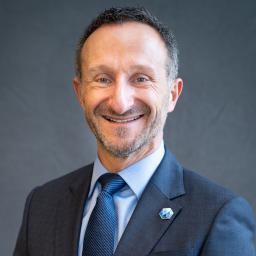On the eve of the 85th anniversary of Kristallnacht, I enter the gates, pass the guards and walk through the corridors of Buckingham Palace, a place oozing with history and the grandeur of Great Britain’s Royal Family. An institution that for centuries led an empire in which Jewish existence was fragile and marginalized is not only embracing, but honoring members of the Jewish community for their contributions. King Charles III’s first New Years Honors List following his Coronation in 2022 included the Chief Rabbi and other members of the Jewish community, and today it is my mother’s turn to be honored. Holocaust survivor Yvonne Bernstein received the MBE award for her impactful work in Holocaust education and remembrance.
Born in Germany and aged just a year and a half when Kristallnacht happened in 1938, Yvonne’s life changed forever. She was separated from her parents for six years and survived in Paris, spending part of World War II as a hidden child. After the War ended, Yvonne was reunited with her parents in England, appreciating the embrace of a new home, building a career as a teacher, raising children, followed by grandchildren, and soon, God willing, a first great grandchild due to be born in Israel–our homeland.
In January 2020, Kate, Princess of Wales and Britain’s future Queen, released two portraits she had photographed of Holocaust survivors, including my mother, Yvonne. Her million Instagram followers and others witnessed her elevation of Jewish history and her recognition of current and future Jewish life. In 2021, Kate made more news when she hugged my mum and Steven Frank, the other survivor she photographed, as she opened the exhibition at the Imperial War Museum honoring the survivors and their families. In December 2022, my mother sat in the gallery of the House of Commons, as the Prime Minister, Leader of the Opposition and all of Parliament stood in silence to commemorate the 80th anniversary of the first condemnation of the mass murder of Jews by the British Prime Minister in 1942. It is a remarkable turn of history, that a young refugee and survivor might one day be honored by royalty on the eve of the Kristalnacht anniversary.
And yet, it is a stereotypical wet and windy autumnal day in London, the gray clouds perhaps a metaphor for dark times. We live in a time of fear and growing antisemitism affecting Jews worldwide, fuelled by an acute sense of isolation rupturing decades of progress and integration in the post-Holocaust world. In the US, on college campuses, in workplaces, and in schools, Jews feel unsafe due to the sharp rise in antisemitism and the vocal hatred of Jews being expressed in what were formerly considered safe spaces. The Jewish community wonders why their friends and colleagues are shunning them for being Jewish and standing up for Israel.The growth in attacks on Jews in recent years, the horror of the October 7 massacre killing more Jews in a single day than at any time since the Holocaust, and the wave of antisemitism that followed leave us fearing for our future.
Should we despair in the face of Dara Horn’s prescient words, believing “People Love Dead Jews”? Writing before October 7, Deborah Lipstadt, US Special Envoy to Monitor and Combat Antisemitism, articulated a powerful recipe to overcome the pessimism that growing antisemitism might bring: the best way to combat antisemitism is from a positive place: “We must be motivated far more by our love for the insights, wisdom and joy embedded in Jewish culture than by the fight against those who harbor an insane hatred of it.”
Jewish day schools in North America have felt the sting of this crisis in countless ways. They are, once again, at the core of their communities providing safe spaces for students and their families, standing up for Israel, welcoming Israelis seeking refuge for their children from the war, delivering deep secular and Jewish learning, and supporting alumni who are leaders of Jewish life on campus and in business, or fighting for our country as volunteers in the Israeli Army.
The formula that Lipstadt prescribes is what our schools are doing; we spread love to combat hate. Rabbi Lord Jonathan Sacks, z”l focuses on education as the centerpiece of how Jews have survived for millennia: “To defend a country, you need an army. But to defend a civilisation, you need schools.” Combating antisemitism is, indeed, best done through education, awareness, and connection to the world around us. According to Rabbi Sacks: “We work for these things in our Jewish schools. We give our children confidence in who they are, so that they can handle change without fear and keep learning through a lifetime… Schools are about more than what we know and what we can do. They are about who we are and what we must do to help others become what they might be. The world our children will inherit tomorrow is born in the schools we build today.”
As I reflect on this great honor bestowed on my mother, I wonder about the future of the Jewish community. I am shattered by all that has been taken from us in the past month, and yet I know that proud, educated Jewish children are going to lead us into a strong Jewish future, as they have throughout the generations.



